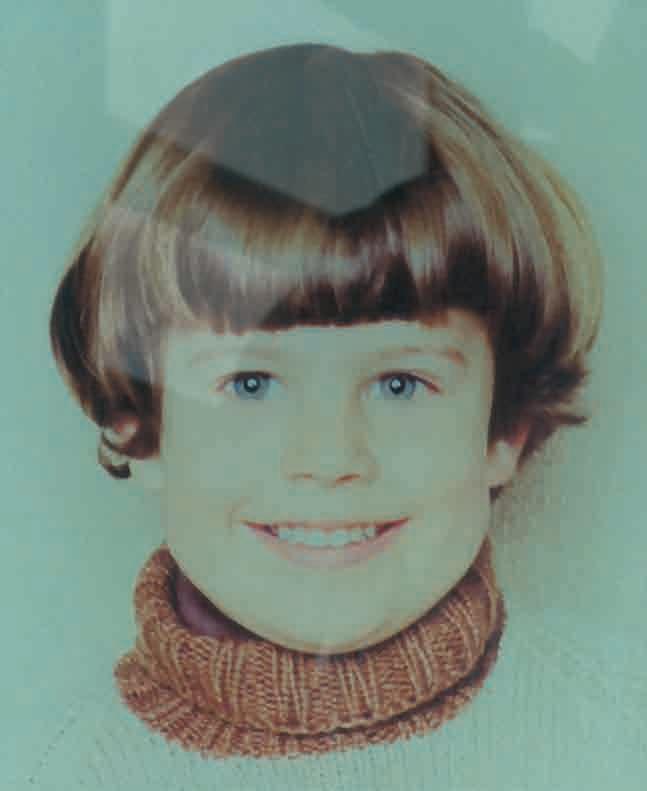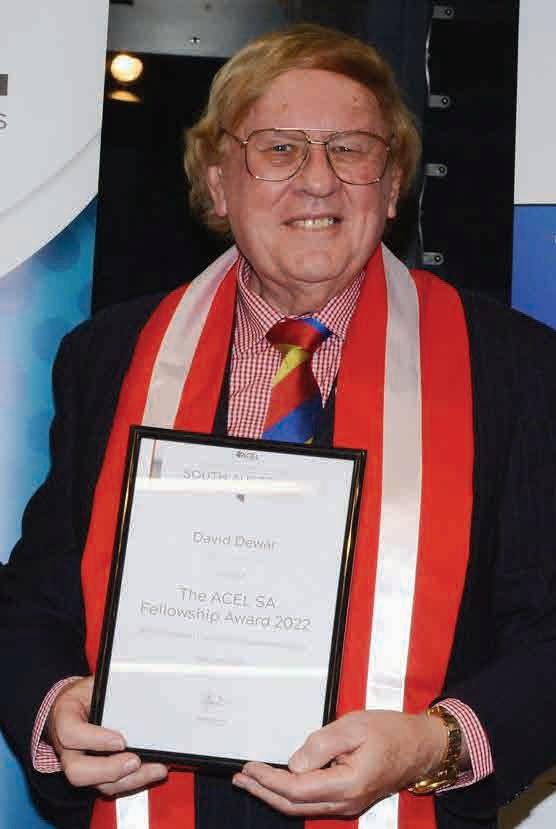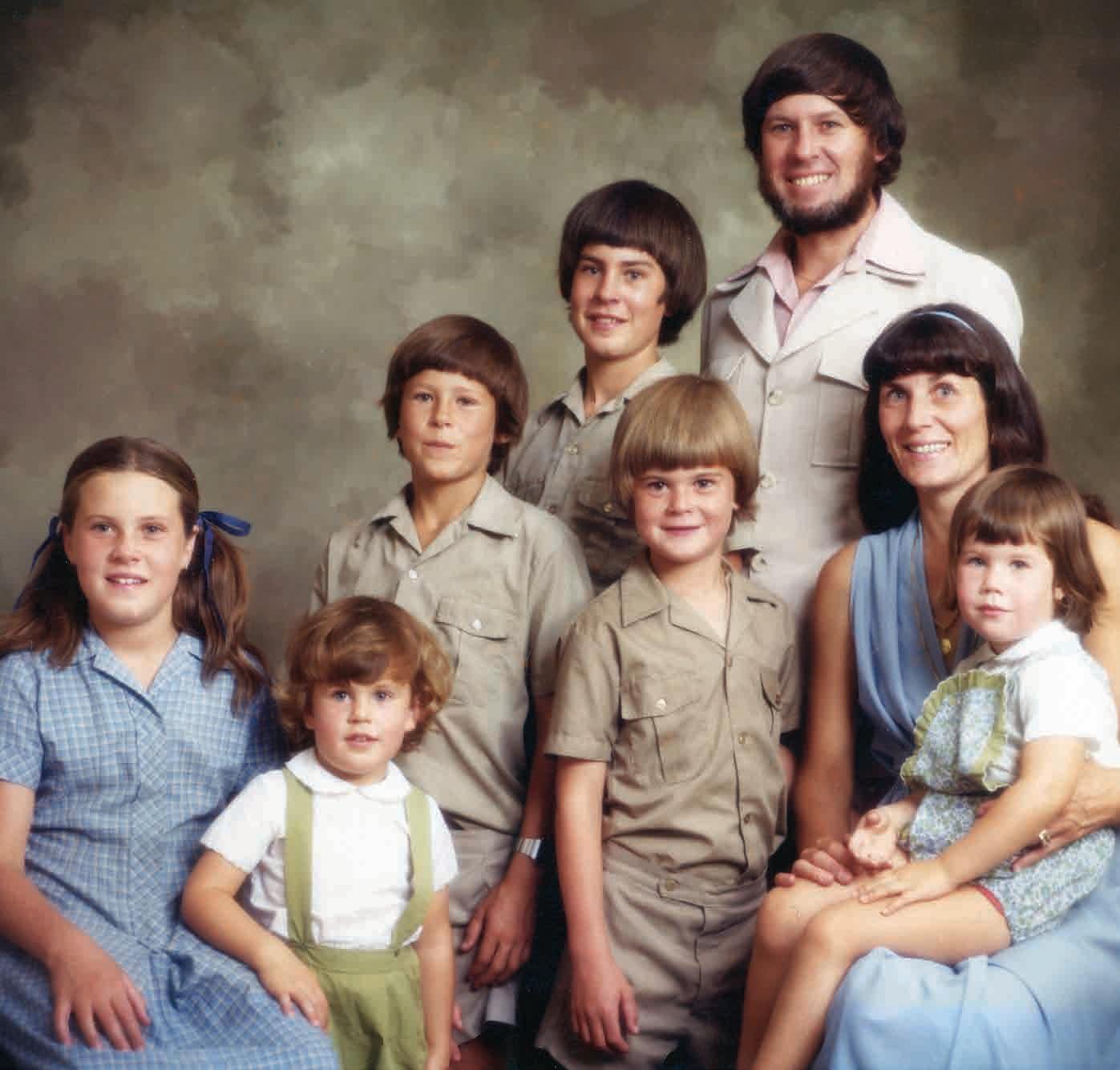
4 minute read
Making the world brighter
David Dewar (Class of 1961) had dedicated much of his life to the safety of others while in the water, when in an unimaginable tragedy, he lost his own son to a drowning incident. Despite his grief, the teacher and father of eight carried on his meaningful work in lifesaving and water safety education.
On a warm August day in 1983, four year old Adrian Charles Dewar was playing in the family’s backyard while his father and older brother were attending to outside chores, and his mother fed his new-born sibling. Realising that Adrian was missing, David went to look for his son and, to his horror, found him unconscious in the family’s swimming pool. Tragically, Adrian couldn’t be saved.
Advertisement
“Despite having safety fences, I found him on the bottom of our swimming pool and administered CPR until the ambulance arrived … we rushed to the hospital hoping that he could be resuscitated, but despite the doctors’ best efforts, he died. Our grief was profound,” said David.
After the devastating experience, the time following Adrian’s death was incredibly difficult for the grieving family.
“He (Adrian) was a delightful child, always happy and caring, with a lovely sense of humour. He could play tunes on the piano, could swim across the pool, and was very mentally alert,” recalls David.
“Our children were very deeply affected, as we all loved Adrian’s bubbly presence. It was very hard for them to continue at school, and for years we all struggled to cope with our deep sense of loss and grief. Adrian will always be our muchloved child.
“Our faith and friends helped get us through, with close friends living with us for a week and helping us look after our six surviving children.”
“At Wattle Park Teachers College, we all had to train and achieve our Bronze Medallion with the Royal Lifesaving Society, which I did and greatly enjoyed,” said David.
“During my first teaching appointment at Athelstone Primary School, I discovered that in the previous 100 years of schools in the area, no swimming lessons had ever been provided, and the local children used to learn to swim in the river Torrens, which could be quite deep and treacherous. Consequently, in my fifth year at Athelstone, I set up swimming lessons for the whole school at a private Dernancourt club’s Olympic swimming pool, using the services of Royal Lifesaving to provide the instructors.”
A short time after, David was asked by the Royal Lifesaving Society to become a voluntary instructor and examiner. He later applied his knowledge and skills in water safety to his new role as Deputy Principal at a school in Holden Hill where he oversaw fundraising for a new swimming pool and developed an extensive Royal Lifesaving swimming program for the facility.
David had always been passionate about water safety. Several years before Adrian’s death, he had become heavily involved in improving water safety practices in South Australia. This began with David’s first teaching role at a local primary school.
It was during David’s time at this school that his Royal Lifesaving training was put into practice while leading a camp for Year 7 students.
“On the fourth evening, one of the girls was caught in a rip and taken out to sea. My Royal Lifesaving training came into its own, as I ordered all the students (and five pre-service teachers) out of the water while I swam for my student. I was able to support her and swim across the rip back to the shore, where everyone was very emotional but safe,” recalls David.
David’s work in water safety has been extensive, with remarkable developments achieved under his lead, including the establishment of the first full-time pool lifeguard courses in South Australia. Another notable achievement was the development of the first ever vacation aquatics program, which continues to this day across the state.
“I had conducted three yearly aquatic camps at Ankara, on the River Murray at Walkers Flat with a team of teachers, and the extensive (and very safe) program we developed caught the attention of the Outdoor Education Unit of the Education Department. I was then asked to be the (paid) Instructor in Charge of the first Vacation Aquatics Program in South Australia in January 1975, operating from Goolwa to Normanville across the Fleurieu Peninsula. This proved to be a great success, and since then has greatly expanded across the state,” says David.
David’s passion and dedication towards lifesaving and water safety continues to this day. He is currently a State and National Director of the Royal Lifesaving Society.

The Dewar family continue to commemorate the life of Adrian and to raise awareness of water safety education. This was more recently expressed through a donation to the University of Adelaide’s Health and Medical Sciences building. In 2016, the donation was recognised through the creation of 'The Adrian Charles Dewar Playroom', a welcoming space for parents and their children while they are waiting for treatment.
“Training future leaders in health and medical science is a very worthy ideal, which will help generations of children and families. Providing a playroom for children seeking medical help is a living memorial to our son Adrian, and we are grateful for the opportunity to support the University of Adelaide,” says David.
“We hope the space will see the enrichment of children’s lives and health for many generations to come.”
David’s water safety message to parents
Australians love the water, which is why it is so important that we all stay safe when we’re in, on, or around it. We want you and your family to love and enjoy the water but to do so safely. While some general principles of safety, such as supervision, remain constant throughout a child's life, Royal Life Saving’s life-stage approach addresses specific risks and hazards for children and young adults.
By understanding your child’s developmental life stage, you can be better prepared to deal with the various risks and hazards that impact specific age groups.

Young children are at high risk of drowning. They are naturally curious and attracted to water. However, they are too young to understand the concept of danger, making active adult supervision vital.
Although children aged 0 to 4 years are at most risk, Royal Life Saving recommends some level of supervision for all children under 15. This includes being in the water, within arms’ reach, and actively supervising children aged 0 to 4 years, actively supervising from the water’s edge for those aged 5 to 10 years, and regularly checking up on those aged 11 to 14 years.
Further information is available at royallifesaving.com.au/educateparticipate/swimming/swim-and-survive










